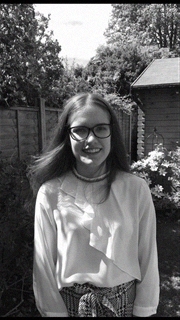Tutor HuntResources English Resources
How Does Shakespeare Present The Witches In "macbeth"?
An example of a GCSE response to an extract task
Date : 18/05/2020
Author Information

Uploaded by : Amelia
Uploaded on : 18/05/2020
Subject : English
Macbeth - How does Shakespeare present the witches in Act 1 Scene 3 of "Macbeth", as well as the play as a whole? [30 marks] AO4 [4 marks]
Shakespeare presents the witches in Act 1 Scene 3 as otherworldly, threatening figures. Immediately they are distinguished from other characters in the play because they chant in unison, which presents to the audience a starkly unsettling atmosphere. The fact that they speak in trochaic tetrameter, for example `hand in hand`/`sea and land` stresses the fact that the witches are chanting and differentiates them from the way that Macbeth and Banquo speak.
The witches and the supernatural appear to have a prominent role in the 11th century setting of the play. Every time they enter a scene, there is the sound of thunder, which in Shakespearean England was believed to signal an omen of conflict within an individual or an entire country. They reveal to Macbeth and Banquo that Macbeth shall be `Thane of Cawdor`, `Thane of Glamis` and `thou shalt be King hereafter`, which encourages Macbeth to ultimately commit to the course of evil in order to fulfill the witches` prophesies. However, in this scene Banquo is more sceptical about that the witches reveal to them, acting as a voice of reason and not succumbing to evil. Banquo remarks that the `instruments of darkness`, referring to supernatural practices, `Win us with honest trifles,/To betray`s/In deepest consequence`, which is used by Shakespeare as a dramatic contrast to the reaction of Macbeth.
The significance of the number three is shown to have a significant connection to the witches and the supernatural. The fact that the `[3 witches chant]` is interesting in the sense that it could reflect how the witches are able to view the past, present and future simultaneously, helping to explain how they are able to reveal Macbeth`s future prospect of being crowned king through a series of apparitions. There is repetition of `thrice` which reinforces an otherworldly tone. This is important because the play was written in an age of superstition.
Lady Macbeth is another character in the play who summons evil spirits, in order for her to become ruthless enough to be willing to assist Macbeth in carrying out regicide, which would have been an unspeakable sin. In her soliloquy she cries, `come, you spirits`, which identifies her willingness to turn towards the force of vice in order to satisfy her ambitions. For this reason, she becomes a driving force or catalyst, along with the witches, to manipulate Macbeth by telling him that otherwise he will `live a coward in thine own esteem` in an attempt to persuade him to have the courage to commit the murder. She says that `Fate along with metaphysical aid doth seem/To have thee crowned withal`, which suggests that she believe the power of the supernatural and the hand of Fate appear to have secured the prophecy that Macbeth will be crowned king.
Ultimately, the witches can be viewed from a broader sense as an externalisation of evil inward human impulses. Lady Macbeth together with the witches appear to be the driving force for Macbeth`s `vaulting ambition`. It is only due to Macbeth`s mental deterioration and anagnorisis that he comes to the bleak conclusion that `Life`s but a walking shadow`, suggesting emptiness and therefore pointing towards him being framed by the witches and the supernatural to descend from an exalted hero to a tragic tyrant.
This resource was uploaded by: Amelia
